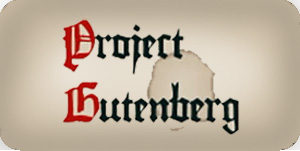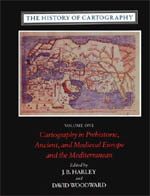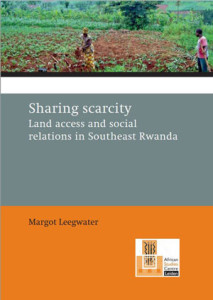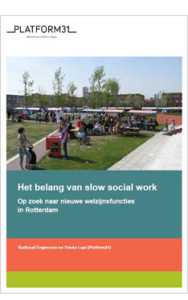TEDTalk – Lisa Bu ~ How Books Can Open Your Mind
What happens when a dream you’ve held since childhood … doesn’t come true? As Lisa Bu adjusted to a new life in the United States, she turned to books to expand her mind and create a new path for herself. She shares her unique approach to reading in this lovely, personal talk about the magic of books.
Harvard Classics (Bookshelf)
 The Harvard Classics, originally known as Dr. Eliot’s Five Foot Shelf, is a 51-volume anthology of classic works from world literature, compiled and edited by Harvard University president Charles W. Eliot, that was first published in 1909.
The Harvard Classics, originally known as Dr. Eliot’s Five Foot Shelf, is a 51-volume anthology of classic works from world literature, compiled and edited by Harvard University president Charles W. Eliot, that was first published in 1909.
Dr. Eliot, then President of Harvard University, had stated in speeches that the elements of a liberal education could be obtained by spending 15 minutes a day reading from a collection of books that could fit on a five-foot shelf. (Originally he had said a three-foot shelf.)
The publisher P. F. Collier and Son saw an opportunity, and challenged him to make good on this statement by selecting an appropriate collection of works; the Harvard Classics was the result. Eliot worked for one year together with William A. Neilson, a professor of English; Eliot determined the works to be included and Neilson selected the specific editions and wrote introductory notes (Kirsch 2001). Each volume had 400 to 450 pages or so; and the included texts are “so far as possible, entire works or complete segments of the world’s written legacies” (Going 2006).
The collection was widely advertised by Collier and Son, in Collier’s Magazine and elsewhere, with great success. As Adam Kirsch, writing in 2001 Harvard magazine, notes, “It is surprisingly easy, even today, to find a complete set of the Harvard Classics in good condition. At least one is usually for sale on eBay, the Internet auction site, for $300 or so, a bargain at $6 a book. The supply, from attics or private libraries around the country, seems endless—a tribute to the success of the publisher, P.F. Collier, who sold some 350,000 sets within 20 years of the series’ initial publication” (Kirsch 2001). A separate 20-volume selection by Eliot, the Harvard Classics Shelf of Fiction, was published in 1917.
Collier’s was a major publisher of sets in the early 1900s and throughout the century issued many multi-volume sets of authors as diverse as Charles Dickens, Rudyard Kipling, John Steinbeck, P. G. Wodehouse and Arthur Conan Doyle.
Currently, a hardcover set of the Harvard Classics (now in the public domain) is published by Easton Press and a paperback version by Kessinger Publishing.
See: https://www.gutenberg.org/Harvard_Classics_(Bookshelf)
The University of Chicago Press ~ The History Of Cartography
 The first volume of the History of Cartography was published in 1987 and the three books that constitute Volume Two appeared over the following eleven years. In 1987 the worldwide web did not exist, and since 1998 book publishing has gone through a revolution in the production and dissemination of work. Although the large format and high quality image reproduction of the printed books (see right column) are still well-suited to the requirements for the publishing of maps, the online availability of material is a boon to scholars and map enthusiasts.
The first volume of the History of Cartography was published in 1987 and the three books that constitute Volume Two appeared over the following eleven years. In 1987 the worldwide web did not exist, and since 1998 book publishing has gone through a revolution in the production and dissemination of work. Although the large format and high quality image reproduction of the printed books (see right column) are still well-suited to the requirements for the publishing of maps, the online availability of material is a boon to scholars and map enthusiasts.
On this site the University of Chicago Press is pleased to present the first three volumes of the History of Cartography in PDF format. Navigate to the PDFs from the left column. Each chapter of each book is a single PDF. The search box on the left allows searching across the content of all the PDFs that make up the first six books.
“An important scholarly enterprise, the History of Cartography … is the most ambitious overview of map making ever undertaken …. People come to know the world the way they come to map it—through their perceptions of how its elements are connected and of how they should move among them. This is precisely what the series is attempting by situating the map at the heart of cultural life and revealing its relationship to society, science, and religion…. It is trying to define a new set of relationships between maps and the physical world that involve more than geometric correspondence. It is in essence a new map of human attempts to chart the world.”—Edward Rothstein, New York Times
“It is permitted to few scholars both to extend the boundaries of their field of study and to redefine it as a discipline. Yet that is precisely what The History as a whole is doing.”—Paul Wheatley, Imago Mundi
“A major scholarly publishing achievement.… We will learn much not only about maps, but about how and why and with what consequences civilizations have apprehended, expanded, and utilized the potential of maps.”—Josef W. Konvitz, Isis
Go to: http://www.press.uchicago.edu/books/HOC/index.html
Margot Leegwater ~ Sharing Scarcity: Land Access And Social Relations In Southeast Rwanda
 Land is a crucial yet scarce resource in Rwanda, where about 90% of the population is engaged in subsistence farming, and access to land is increasingly becoming a source of conflict. This study examines the effects of land-access and land-tenure policies on local community relations, including ethnicity, and land conflicts in post-conflict rural Rwanda. Social relations have been characterized by (ethnic) tensions, mistrust, grief and frustration since the end of the 1990-1994 civil war and the 1994 genocide. Focusing on southeastern Rwanda, the study describes the negative consequences on social and inter-ethnic relations of a land-sharing agreement that was imposed on Tutsi returnees and the Hutu population in 1996-1997 and the villagization policy that was introduced at the same time. More recent land reforms, such as land registration and crop specialization, appear to have negatively affected land tenure and food security and have aggravated land conflicts. In addition, programmes and policies that the population have to comply with are leading to widespread poverty among peasants and aggravating communal tensions. Violence has historically often been linked to land, and the current growing resentment and fear surrounding these land-related policies and the ever-increasing land conflicts could jeopardize Rwanda’s recovery and stability.
Land is a crucial yet scarce resource in Rwanda, where about 90% of the population is engaged in subsistence farming, and access to land is increasingly becoming a source of conflict. This study examines the effects of land-access and land-tenure policies on local community relations, including ethnicity, and land conflicts in post-conflict rural Rwanda. Social relations have been characterized by (ethnic) tensions, mistrust, grief and frustration since the end of the 1990-1994 civil war and the 1994 genocide. Focusing on southeastern Rwanda, the study describes the negative consequences on social and inter-ethnic relations of a land-sharing agreement that was imposed on Tutsi returnees and the Hutu population in 1996-1997 and the villagization policy that was introduced at the same time. More recent land reforms, such as land registration and crop specialization, appear to have negatively affected land tenure and food security and have aggravated land conflicts. In addition, programmes and policies that the population have to comply with are leading to widespread poverty among peasants and aggravating communal tensions. Violence has historically often been linked to land, and the current growing resentment and fear surrounding these land-related policies and the ever-increasing land conflicts could jeopardize Rwanda’s recovery and stability.
Full text book: http://www.ascleiden.nl/news/sharing-scarcity
Allison Meier ~ The Revolution Has Been Digitized: Explore The Oldest Archive Of Radical Posters
The oldest public collection of radical history completed a digital archive of over 2,000 posters. The Joseph A. Labadie Collection at the University of Michigan Library announced this month that its posters on anarchism, civil liberties, feminism, labor, and other political movements are online for the first time.
“It’s not enough for us to preserve the artifact if people cannot see it,” Julie Herrada, Labadie Collection curator, told Hyperallergic. “Posters are a difficult format because they are fragile and can only withstand so much physical handling, so providing access to these materials while keeping them safe is a complicated process, or it was, until the technology and resources became more readily available to us.”
Read more: http://hyperallergic.com/the-revolution
Slow social work in Rotterdam ~ als antwoord op het tandeloos welzijnswerk
 Typisch Rotterdams zoals ze daar het beleid in de sociale sector weer eens stevig op de schop nemen. Deze keer om plaats te maken voor Welzijn Nieuwe Stijl. Platform 31 wijst in het rapport Het belang van slow social work op de tandeloosheid van de opeenvolgende beleidswisselingen in het sociaal domein. En ziet veel meer in een organische verandering met een bescheiden rol voor professionals. Samenlevingsopbouw nieuwe stijl, slow social work op zijn Rotterdams.
Typisch Rotterdams zoals ze daar het beleid in de sociale sector weer eens stevig op de schop nemen. Deze keer om plaats te maken voor Welzijn Nieuwe Stijl. Platform 31 wijst in het rapport Het belang van slow social work op de tandeloosheid van de opeenvolgende beleidswisselingen in het sociaal domein. En ziet veel meer in een organische verandering met een bescheiden rol voor professionals. Samenlevingsopbouw nieuwe stijl, slow social work op zijn Rotterdams.
Werkelijk elke gemeente in ons land worstelt er mee: de transitie, en de transformatie voor wie hogere ambities heeft met het sociaal domein. Het is work in progress, niemand kan voorzien hoe deze omslag in zorg en welzijn precies zal uitpakken. Wel lopen er diverse onderzoeken, evaluaties, enquêtes en worden er statistische gegevens verzameld. Vaak zijn het dagkoersen, cijfers die nog weinig houvast bieden en bespiegelingen die in het gunstigste geval te bestempelen zijn als educated guesses. Dan zijn er nog de succesverhalen, best practices en handzame lijstjes met tips die instant succes in het vooruitzicht stellen. Wat in veel publicaties onvoldoende tot zijn recht komt is de gelaagdheid van de materie, in het bijzonder de dilemma’s en tegenstrijdigheden die gepaard gaan met zo’n omslag. Het is lastig om deze complexiteit op een toegankelijke manier uiteen te zetten.
De publicatie Het belang van slow social work van Platform31 is een mooi tijdsdocument over het Rotterdamse welzijnswerk waar het roer voor de zoveelste keer om moet. De auteurs Radboud Engbersen en Tineke Lupi doken in beleidsrapporten, spraken over een langere periode met bestuurders, ambtenaren, professionals en vrijwilligers. Ze keken ter plekke en spraken met direct betrokkenen. Hun keuze om buurthuizen en religieuze gemeenschappen onder de loep te nemen, is een gouden greep. Daar leggen ze de Achilleshiel van het welzijnswerk bloot, en sprokkelen er de bouwstenen voor een andere benadering: het slow social work.
Retorische beleidstaal
Rotterdam heeft een traditie hoog te houden als het gaat over sociale uitvindingen: Duimdrop, Opzoomeren, Mensen maken de stad, Perron Nul, de inzet van mariniers, het Kwaliteitspanel, de APK-projectgarage, Topscore, om zo maar eens wat voorbeelden te noemen. Een kwart eeuw geleden werd de spraakmakende Rotterdamse versie van sociaal vernieuwen zelfs tot kabinetsbeleid verheven. Engbersen en Lupi volgen het beleidsspoor van de afgelopen 25 jaar en lichten er een rode draad uit die ondanks alle wisselingen in het beleid, steeds weer de kop op steekt: de rol van de burger als gangmaker voor sociale veranderingen. De jongste beleidsrapporten, – met termen als eigen kracht, zelfredzaamheid, burgerkracht en zelforganisatie -, wijzen opnieuw in die richting. En ook uit dit rapport blijkt dat het een hardnekkige kwestie is om de regie echt in handen te leggen van burgers. De auteurs concluderen : ‘…dat de veranderingen in het welzijnswerk zich vooral op institutioneel niveau tussen de overheid en welzijnsinstellingen afspelen.’ Saillant is dat bestuurders en ambtenaren de mentaliteit van de burgers en het gebrek aan kennis van het beleid, als oorzaken aanwijzen waarom de beleidsvoornemens maar niet aarden. En de burgers die wel actief worden, krijgen het verwijt dat ze zich alleen inzetten voor de eigen groep, in plaats van de buurt in zijn geheel. Zoveel wantrouwen jegens de eigen burgers zegt wel iets over het retorisch gehalte van hun beleidsnota’s. Read more



